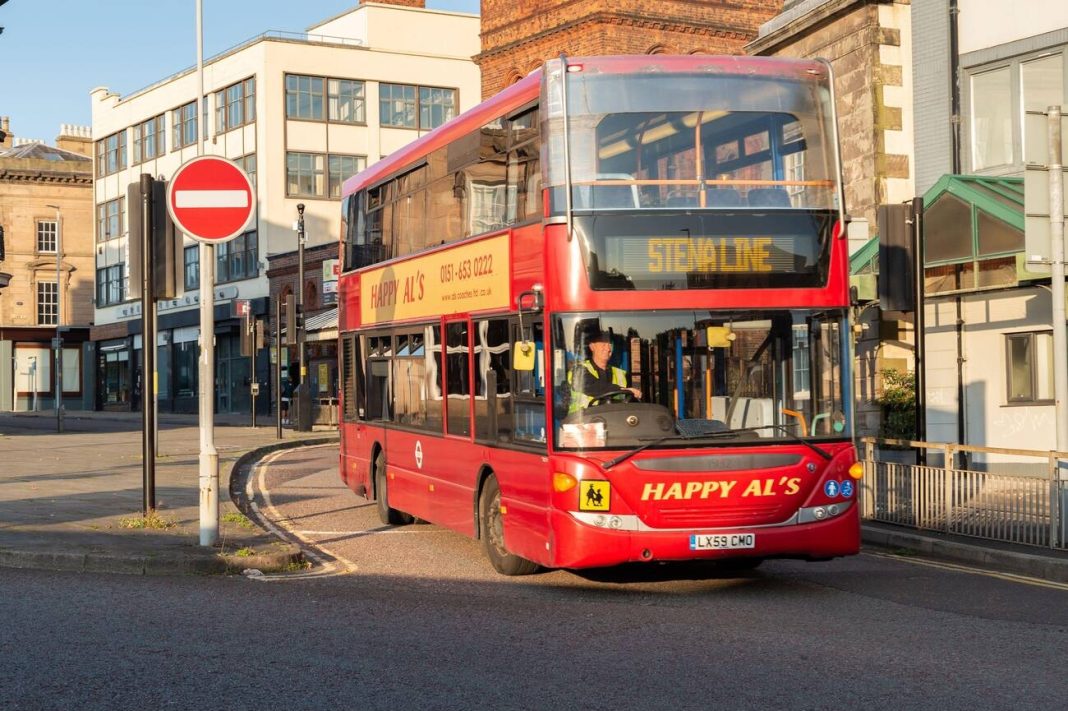Over the last 15 years, bus services outside of London have encountered a pronounced and concerning decline, presenting hurdles to the movement and interconnection of communities throughout England and Wales. Urban and rural areas have witnessed significant drops of 48% and 52% in bus services since 2008, illustrating a bleak portrayal of the present public transportation landscape. Certain regions have suffered disproportionately, losing over 80% of their bus routes. This substantial service decrease carries widespread consequences for millions, affecting their daily routines, access to vital services, and overall well-being.
Unveiling the Drastic Bus Service Reduction
Over the past 15 years, a significant reduction in bus services has quietly unfolded in England and Wales, impacting millions’ daily routines and mobility. This disclosure stems from a recent investigation by the University of Leeds and Friends of the Earth, laying bare the scope and consequences of this “silent erosion” in bus services.
Beyond being a numerical trend, this erosion signifies a loss of connectivity, especially poignant for those dependent on public transportation. The data further highlights that 22% of UK households lack access to a car, rising to 35% within the low-income demographic. This revelation underscores the far-reaching implications of dwindling bus services, emphasising the urgent need for attention and remedial action.
Political Disparities and the Silent Erosion
The study uncovers a sombre scenario in specific constituencies, including Hart, Fenland, and Broxtowe, where bus services have declined by over 80%. North East Hampshire, Bridgwater in Somerset, Staffordshire Moorland, and Stoke-on-Trent North have also borne the brunt, facing declines ranging from 78% to 82%.
The research highlights a correlation between bus service decline and political affiliations. Of the 100 constituencies with the most significant decline, 82 have a Conservative MP, raising questions about the impact of political decisions on public transportation, particularly outside the capital.
Geographic Disparities and Vulnerable Communities
The title selected captures the hidden yet significant effects of this decline, as many communities outside London face an 80% reduction in certain regions. Since 2008, urban areas have seen a 48% decrease, while rural areas have experienced a 52% downturn. This study highlights geographical inequalities, showcasing London’s consistent and dependable weekly bus services compared to those outside the city. In non-London regions, weekday evening services often run at one-third or less of the frequency seen during weekday mornings. This disproportionately affects shift workers, cultural service users, and individuals without access to cars—vulnerable groups bearing the brunt of these disparities.
Financial Strains and Operating Costs
Bus fares in Wales, adjusted for inflation, have surged by almost a fifth over the last two decades, posing operator challenges. The proportion of concessionary fares has also risen, consistently surpassing figures for Scotland and England (outside London). Financial strains have intensified since 2013-14, with operating costs surpassing operating revenue. Driver shortages post-pandemic have further compounded challenges.
Towards a Sustainable Future: Calls for Change
As part of a solution to address the declining bus services, the Campaign for Better Transport urges the government to reconsider how buses are funded, advocating for a shift of responsibility away from local authorities.
The organisation proposes reallocating funds from high-carbon transport projects, like road building, into a centralised funding settlement for all local transport bodies to utilise on buses. Transport for Quality of Life’s recommendations, endorsed by Friends of the Earth, emphasise the need for additional funding and regulatory measures. The proposed changes include:
Increased Funding
By 2030, an additional operating expenditure of approximately £7.5 billion per year is deemed necessary, along with £24 billion for capital expenditure until 2035. As the National Audit Office reported, the reduction in financial support for bus services in England outside London between 2010-11 and 2018-19 underscores the urgency of increased funding.
Regulation
The deregulation of bus services in the 1980s had disastrous consequences. The study suggests a return to regulation, citing London’s successful model, and advocates for providing all transport authorities with the resources and powers to franchise bus services, ensuring a well-regulated service becomes the norm.
Setting Quality Standards
Transport for Quality of Life recommends setting quality standards for bus provision in different locations, such as guaranteeing at least an hourly bus service for villages of 200-300 people from 6 am to midnight, seven days a week.
A Critical Need for Accessible and Sustainable Public Transportation
Since 2008, bus services in England and Wales have been drastically reduced, negatively impacting millions reliant on public transport and exacerbating social isolation. A revival in bus services is imperative to overturn this trend, necessitating increased funding, regulation, and innovation. This resurgence aligns with climate objectives and guarantees accessible and dependable public transportation. Immediate action by policymakers is crucial to establishing public transport as a fundamental right rather than a privilege.

